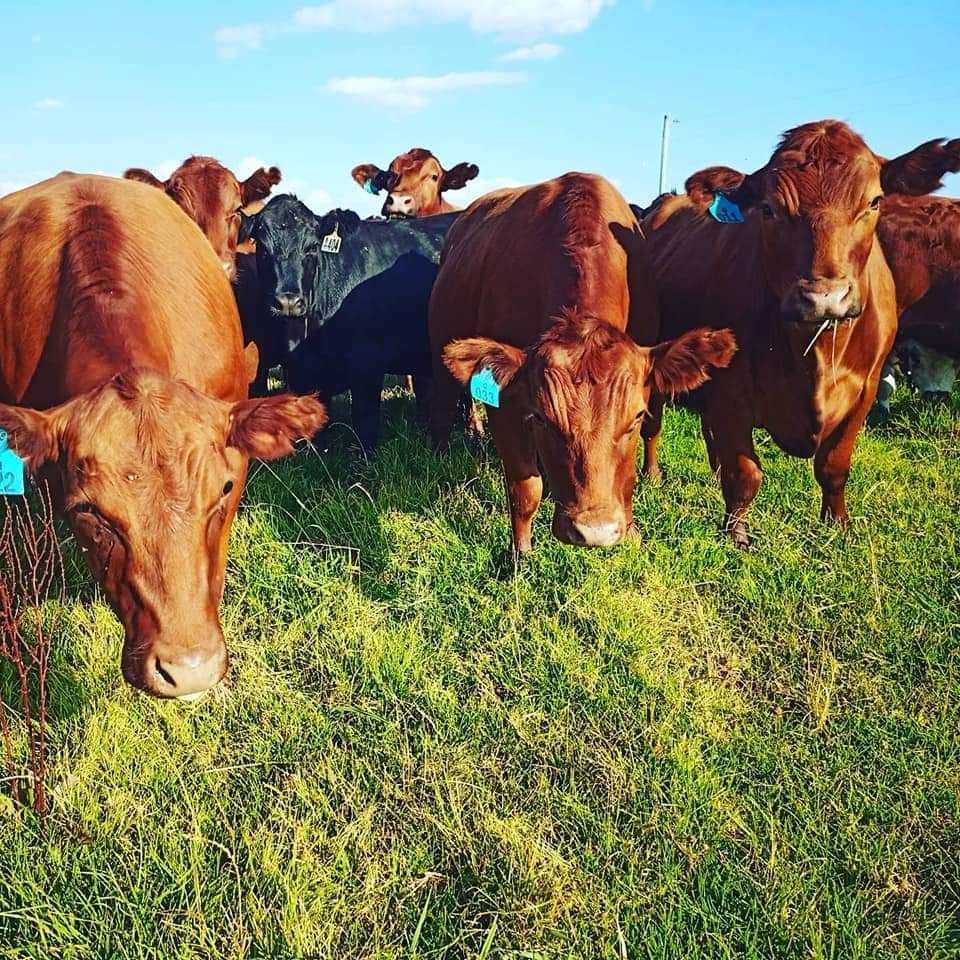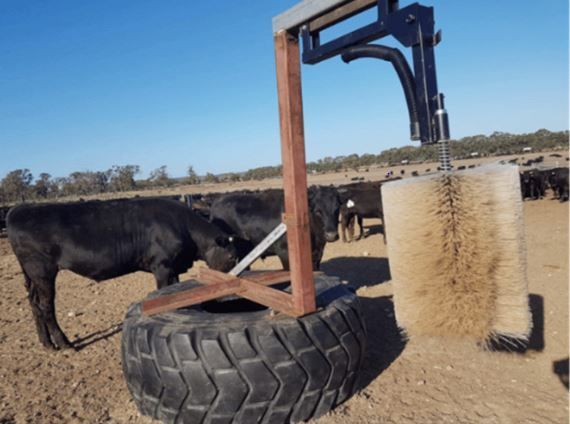1MG FlippingBooks
Feedlot Cattle Can Brush Their Stresses Away
Feedlot cattle with access to grooming brushes are generally more content, sociable and have less stress, according to recent research out of Murdoch University’s Centre for Animal Production and Health.

They also have reduced aggression, suggesting brushes may permit a more harmonious feedlot environment.
Associate Professor in Animal Welfare and Ethics, Teresa Collins said her team had investigated ways to improve the welfare of cattle in feedlots, focusing on approaches within routine farming systems.
“There is an increasing trend to prepare beef cattle for market in feedlots in Australia, with numbers sitting above 1.4 million in 2024 - and these can be regarded as barren environments when compared to pasture-based farms,” Associate Professor Collins said.
“Our team investigated how to improve the welfare of cattle within a feedlot context, in a way that is relatively practical to implement.
“We found that installing cattle brushes can be a simple and cost-effective way to improve their welfare, without leading to negative impacts like reduced weight gain.”
The study looked at the behaviour and production of about 170 cattle in a feedlot, comparing those in pens with enrichment in the form of a large, upright cattle-grooming brush, and those without, over 100 days.
Cattle with access to the brush exhibited more positive demeanour than those with no brush.
The research team was surprised to find the frequency and duration of brush use did not decrease over the study period, suggesting the cattle valued this form of enrichment for providing long-term mental and physical stimulation.
“Interestingly, the cattle were also observed to engage in play behaviour more frequently. As cattle are a social species, this is an important sign of positive wellbeing,” Associate Professor Collins said.
“These types of studies attempt to increase the understanding of what positive animal welfare looks like in farmed cattle. Despite the need for confinement for maximising growth, it is important to provide opportunities for cattle to groom themselves and each other to maintain overall wellbeing.
“Less stressed cattle will likely ensure safer interactions between producers and their animals, and also better-quality meat. Providing environmental enrichment helps promote natural behaviour which supports long term productivity and farm sustainability, while mitigating societal concerns for cattle farmed in feedlots.”
“The use of the cattle brush is an example of how producers can put into practice one of the stated goals in the Australian Beef Sustainability Framework (ABSF), which creates a pathway of best practice for the Australian beef industry, without a lot of expense or labour.”
This pilot study was carried out in two pens on one farm in Lake Preston in Western Australia.
The full published research is available in Frontiers in Animal Science.

















